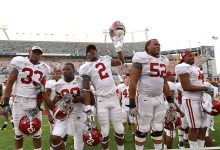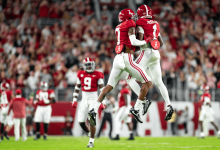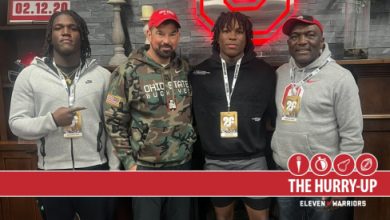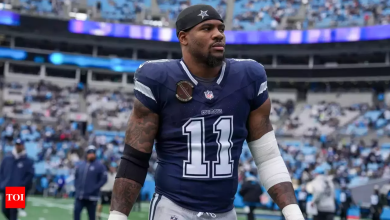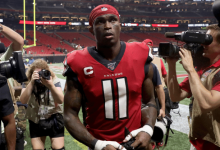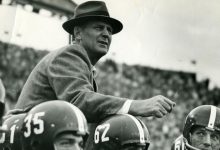Eagles player Jalen Carter says he’s sorry for the vehicle accident that killed a UGA staff member and colleague.
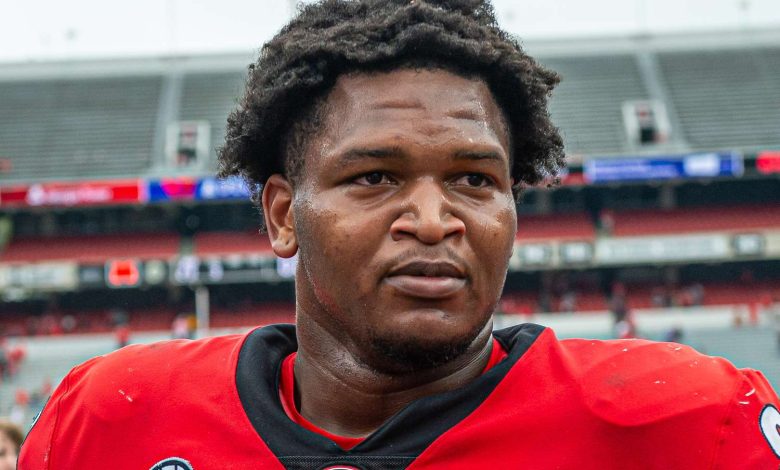
Jalen Carter’s Apology: Reflecting on the Tragic Vehicle Accident and Its Impact
In a tragic incident that reverberated across the sports world, Jalen Carter, a defensive tackle for the Philadelphia Eagles, found himself in the eye of a storm after a vehicle accident that led to the death of a University of Georgia (UGA) staff member and a fellow colleague. The incident, which occurred shortly after the Bulldogs celebrated their victory in the national championship, shook the University of Georgia community and the broader football world. Carter, who was one of the most promising prospects in college football at the time, publicly apologized for his role in the accident and expressed his sorrow over the loss.
This essay explores the details of the incident, the impact it had on all those involved, and the subsequent apology made by Jalen Carter. It also delves into the complexities of dealing with such a tragedy, the responsibility athletes carry in the public eye, and the ways in which Carter has reflected on his actions and sought to make amends. Additionally, this essay touches upon the broader context of sports culture, accountability, and how moments of crisis can offer opportunities for growth, change, and reflection.
The Incident: Tragedy Strikes the UGA Community
On January 15, 2023, just hours after the Georgia Bulldogs won the College Football Playoff National Championship, a deadly vehicle crash occurred in Athens, Georgia. The crash resulted in the deaths of Devin Willock, a 20-year-old offensive lineman for UGA, and Chandler LeCroy, a 24-year-old staff member of the UGA football program. LeCroy, who served as a recruiting analyst, and Willock were killed when the vehicle they were in crashed while speeding at an estimated 104 miles per hour, ultimately hitting a utility pole and tree.
The accident quickly became a high-profile event due to the tragic loss of life and the association of Jalen Carter with the incident. Carter, who had been drafted by the Philadelphia Eagles as the ninth overall pick in the 2023 NFL Draft, was believed to have been driving another vehicle involved in the incident. Reports suggested that Carter had been present at the scene of the crash, racing alongside the vehicle driven by LeCroy. Though Carter was not directly involved in causing the crash, the incident raised questions about his behavior leading up to the tragic event, particularly regarding whether there was any reckless driving or other forms of misconduct on his part.
At the time of the accident, Carter was considered one of the top prospects in the 2023 NFL Draft, having just completed a stellar career at the University of Georgia, where he was a key player on the Bulldogs’ dominant defense. His presence in the national spotlight made the incident even more tragic, as it brought national attention to the deadly crash and the subsequent legal and ethical questions surrounding Carter’s involvement.
The Legal Fallout: Charges and Consequences
Following the accident, an investigation was launched to determine the circumstances surrounding the crash. After several weeks of inquiry, it was revealed that Jalen Carter had been cited for his role in the accident. According to reports, Carter was charged with reckless driving and racing, which were both contributing factors to the tragic deaths of Willock and LeCroy.
The charges were a devastating blow to Carter’s reputation, especially in light of his potential as a high draft pick in the NFL. Though Carter was not charged with causing the deaths directly, the reckless behavior on the road was a clear violation of the law and the ethical standards that athletes are expected to uphold. For an athlete like Carter, whose career was just beginning to take off, the consequences of his actions were immediate and significant.
Carter’s actions also raised broader questions about accountability in the sports world. As a prominent figure, athletes are often expected to be role models and maintain high standards of conduct both on and off the field. The incident prompted calls for greater responsibility and discipline within college sports, especially among high-profile athletes. Critics argued that such incidents should serve as a wake-up call for sports programs and athletes, who must recognize the immense responsibility they carry, not just as players, but as individuals who influence the public.
The Apology: Jalen Carter’s Response
On March 1, 2023, Jalen Carter issued a public statement expressing deep remorse for his involvement in the tragic incident. In a carefully worded apology, Carter acknowledged the pain and suffering caused by the crash and took full responsibility for his actions leading up to it. His statement, though short, conveyed a sincere understanding of the gravity of the situation and the irreversible consequences that followed.
“I want to express my deepest sorrow and regret over the tragic accident that resulted in the loss of Devin Willock and Chandler LeCroy. There are no words that can bring them back, but I am truly sorry for my role in this devastating event. I take full responsibility for my actions and will do everything I can to make amends.”
Carter’s apology, while heartfelt, was met with mixed reactions from the public. Many praised his willingness to take responsibility and express remorse, understanding the immense pressure and scrutiny athletes face. However, others questioned whether his apology would truly be enough to rectify the damage caused, given the scale of the tragedy.
The apology was not just a public relations move—it was an attempt by Carter to address the emotional and moral weight of the situation. It was a moment of vulnerability, where an athlete who had been on the cusp of greatness was confronted with the consequences of his actions. While apologies may never undo the pain and loss that occurred, Carter’s public acknowledgment of his mistakes signaled a step toward accountability.
The Emotional Toll: On Carter and the UGA Community
The emotional toll of the accident was felt most acutely by the families and friends of Devin Willock and Chandler LeCroy. Both victims were deeply loved within the UGA football program, and their deaths left an indelible mark on the university community. The UGA football team held a memorial for Willock and LeCroy, and players, coaches, and staff alike mourned the loss of two individuals who were integral parts of the team’s success.
For Jalen Carter, the situation was also emotionally challenging. The weight of knowing that his actions, whether intentional or reckless, contributed to the deaths of two people would forever affect him. As an athlete who had been celebrated for his talent and dedication, Carter was suddenly faced with the reality of being associated with a tragedy. The media frenzy surrounding the incident, coupled with the legal and ethical questions about his involvement, added to the burden he had to bear.
For Carter, the path to healing would not be easy. Not only did he have to contend with the legal and professional ramifications of the crash, but he also had to process the emotional grief of the situation. Carter’s apology was just one step in what would undoubtedly be a long and difficult journey of self-reflection and atonement.
Lessons Learned: Accountability and Growth
The Jalen Carter incident serves as a powerful reminder of the need for accountability in the world of college sports and professional athletics. While athletes are often celebrated for their abilities on the field, they must also be held to high standards off the field. Reckless behavior, such as speeding and racing, can have disastrous consequences, as demonstrated in this tragedy. The public nature of Carter’s actions meant that his mistakes were broadcast to the world, but they also presented an opportunity for growth and learning.
For Carter, the path forward would require him not only to face the consequences of his actions but also to demonstrate a commitment to change. The apology was a necessary first step, but true accountability would require more—perhaps in the form of community service, mentoring young athletes, and continuing to reflect on the consequences of reckless behavior.
This incident also highlighted the importance of supporting athletes in their personal lives, particularly during difficult times. Coaches, teammates, and family members play a crucial role in helping athletes navigate moments of crisis, ensuring they learn from their mistakes and grow as individuals.
For Georgia, the tragedy underscored the importance of building a culture of responsibility and integrity within the program. The UGA football community rallied around the victims’ families and used the tragedy as a platform to reinforce the values of sportsmanship, accountability, and the well-being of all involved.

